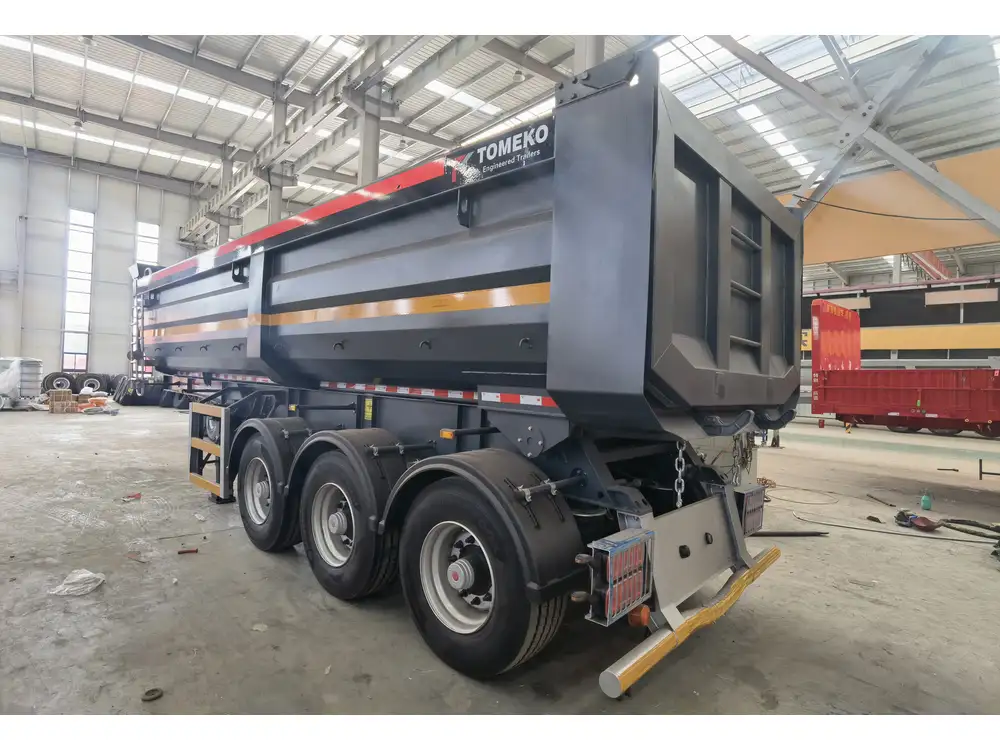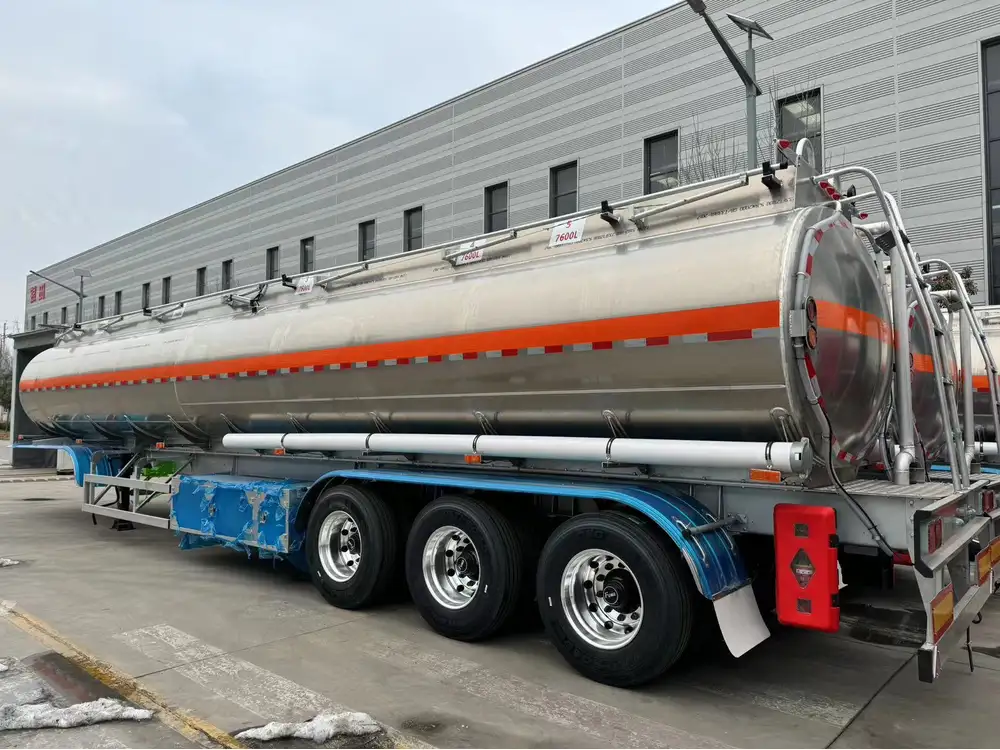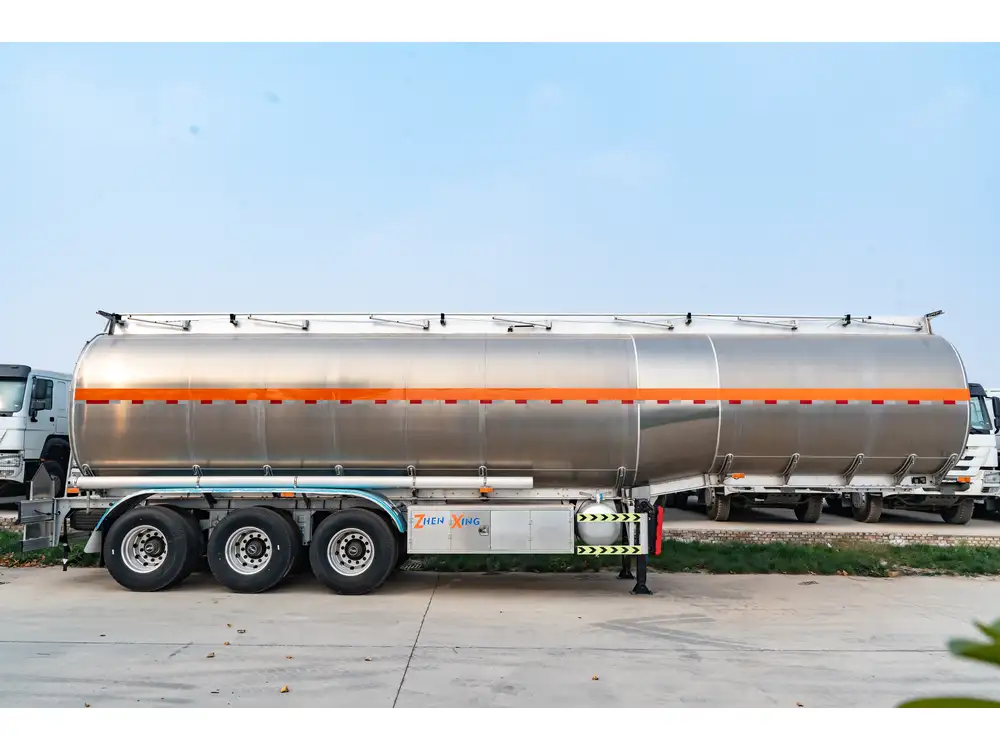Depreciation is a fundamental concept for anyone involved in the purchasing, leasing, or financial management of heavy-duty vehicles, especially for manufacturers like us. When it comes to specialized equipment like a Snake River dump trailer, understanding how depreciation affects your investment can significantly influence your financial planning and overall operational strategy.
What is Depreciation?
Depreciation represents the decrease in value of an asset over time, usually due to wear and tear, age, or obsolescence. For trailers, this process can be influenced by various factors, including usage, maintenance frequency, market demand, and technological advancements. Recognizing these elements is crucial when evaluating the worth of a Snake River dump trailer, whether for resale, tax deductions, or insurance assessments.
Types of Depreciation Methods
Understanding the different methods of calculating depreciation can equip owners with beneficial insights for financial reporting and tax purposes. We generally categorize depreciation into several main methods, each with distinct approaches and implications:
| Method | Description | Ideal Use Case |
|---|---|---|
| Straight-Line Depreciation | Equal depreciation expense over the asset’s useful life. | Suitable for those looking for predictability. |
| Declining Balance | Accelerated depreciation that writes off a larger portion quickly. | Best for rapidly depreciating assets. |
| Units of Production | Depreciation based on usage or mileage. | Ideal for assets with variable usage rates. |
Let’s delve deeper into each method to understand their implications for a Snake River dump trailer.

1. Straight-Line Depreciation
The straightforward nature of straight-line depreciation makes it an appealing choice for many trailer owners. Using this method, the depreciation expense is the same each year, calculated as:
[ \text{Annual Depreciation Expense} = \frac{\text{Cost of Asset} – \text{Salvage Value}}{\text{Useful Life}} ]For instance, if a Snake River dump trailer costs $30,000, has a salvage value of $5,000, and a useful life of 10 years, the annual depreciation would be:
[ \text{Annual Depreciation Expense} = \frac{30,000 – 5,000}{10} = 2,500 ]This method offers simplicity, making it easy for manufacturers and owners to plan their finances.
2. Declining Balance Method
The declining balance method allows for greater depreciation in the earlier years of an asset’s life, reflecting the rapid loss in value commonly experienced by vehicles subjected to heavy use. This method uses a fixed percentage to calculate depreciation, often referred to as the “double-declining balance” method for more aggressive depreciation.
The formula is:
[ \text{Depreciation Expense} = \text{Book Value} \times \text{Depreciation Rate} ]Example Calculations:
Let’s envision a Snake River dump trailer priced at $30,000:
Year 1 (Depreciation Rate: 20%):
- ( 30,000 \times 0.20 = 6,000 )
- Remaining Book Value: ( 30,000 – 6,000 = 24,000 )
Year 2:
- ( 24,000 \times 0.20 = 4,800 )
- Remaining Book Value: ( 24,000 – 4,800 = 19,200 )
This method enables owners to maximize their tax deductions in the early years, a strategic advantage for cash flow management.

3. Units of Production Method
The units of production method tailors depreciation according to actual usage. This calculation appeals to industries with fluctuating usage rates, ensuring that depreciation expense reflects the real wear and tear on the trailer.
This method is ideal for companies that use their Snake River dump trailers variably. The formula involves:
[ \text{Depreciation Per Unit} = \frac{\text{Cost of Asset} – \text{Salvage Value}}{\text{Total Estimated Units}} ]Assuming a trailer has an estimated life of 100,000 miles, if used 15,000 miles in a year, the depreciation would be calculated as:
Sample Calculation:
- Cost of Asset: $30,000
- Salvage Value: $5,000
- Total Estimated Miles: 100,000 miles
For 15,000 miles:
[ \text{Annual Depreciation} = 15,000 \times 0.25 = 3,750 ]This provides flexibility and accuracy based on operational needs.
Real-World Implications of Depreciation
Understanding depreciation implications is vital for strategic asset management. The way you calculate depreciation can have various implications:
- Tax Deductions: Larger depreciation amounts can lead to significant tax deductions, impacting the taxable income favorably.
- Company Valuation: Depreciation affects balance sheets and can influence your company’s valuation over time.
- Resale Value: Tracking depreciation gives a clear idea of value when it comes to reselling your Snake River dump trailer, making negotiation easier.

Impact on Financial Planning
With insightful depreciation methods, businesses can effectively strategize around cash reserves, ensuring that truck and trailer acquisition contributes to their broader financial health. Decision-makers are in a better position to predict cash flow needs, influencing both short-term operations and long-term investments.
Factors Influencing the Depreciation of Snake River Dump Trailers
Understanding the broader context surrounding depreciation can provide a more nuanced view of asset management. Several factors can significantly influence the depreciation rate.
1. Age of the Trailer
As with most machinery, older trailers generally depreciate faster. Newer trailers may retain their value for a more extended period depending on condition, maintenance, and modern features.

2. Usage Frequency
Heavy use results in increased wear and tear, leading to accelerated depreciation. Conversely, trailers that are only occasionally used tend to depreciate at a slower rate, maintaining a higher resale value.
3. Condition and Maintenance
Regular maintenance not only ensures that trailers operate effectively but also slows down the depreciation process. Well-maintained Snake River dump trailers often command a higher resale price than their neglected counterparts.
4. Market Demand and Economic Conditions
The demand for dump trailers can fluctuate based on construction activity and economic trends. During construction booms, trailers may sell for a higher value, impacting perceived depreciation.

5. Technological Advancements
Technological evolution can render older trailers less appealing due to the availability of newer, more efficient models. Thus, depreciation rates may increase as newer models enter the market.
Tax Implications of Depreciation
It’s crucial to understand the tax landscape surrounding depreciation. Businesses frequently take advantage of depreciation as a tax deduction – an allowance that can decrease overall tax liability.
Tax Deductions and Formulating Strategy
In the U.S., the IRS enables businesses to deduct depreciation via Section 179, allowing for upfront expensing of qualifying vehicles and heavy machinery, up to a certain limit. Being aware of limits and specific qualifications is vital for effective tax planning.

Bonus Depreciation
As an added incentive, bonus depreciation allows businesses to take a significant deduction in the first year of an asset’s use. This short-term strategy can be beneficial for acquiring new Snake River dump trailers and enhances cash flow management.
Conclusion: Enhancing Your Investment in Snake River Dump Trailers
Grasping the nuances of depreciation provides strategic insight and enhances decision-making for manufacturers of Snake River dump trailers. From understanding different methods to recognizing influential factors, this comprehensive overview equips stakeholders with the knowledge necessary to manage their assets effectively.
Key Takeaways
- Select the Right Depreciation Method: Depending on how you utilize your dump trailers, choose a method that aligns with your operational needs and financial goals.
- Perform Regular Maintenance: Keeping your trailer in optimal condition helps mitigate accelerated depreciation.
- Stay Informed on Market Trends: Recognizing how external factors influence depreciation can help in pricing strategies and valuations.
Investing in understanding depreciation can serve as a valuable asset in maximizing your investment and optimizing financial performance. With careful planning and consideration, your Snake River dump trailers will continue to serve your operations profitably, leading to sustainable business growth.



